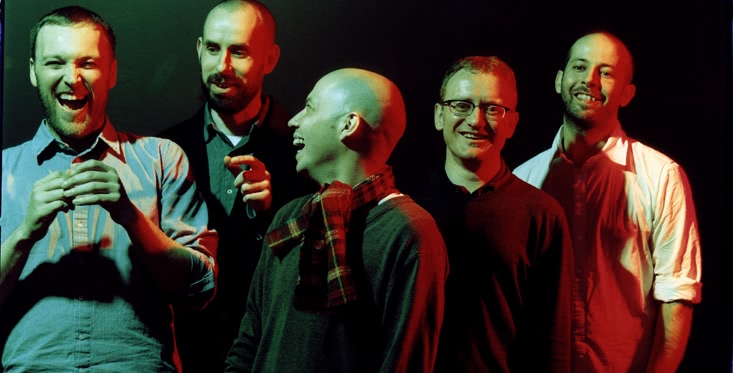Barry Burns, keyboardist extraordinaire and Mogwai stalwart since 1999’sCome On Die Young, is a sharp and funny guy. I’d be lying, however, if I told you this was immediately apparent; his Scottish brogue takes some unravelling. It is somewhat fitting for a band that has, by design or circumstance, become quite difficult to deconstruct. Not many acts can claim the kind of evolution that characterises Mogwai’s career, although as Burns explains, their electronic development came as something of a surprise.
“It came from luck,” he admits happily. “We were in New York to do the second album, and went to this studio that had all this gear that we’d never seen before. We wanted to find a way to use it, of course; we were quite young and basically wanted to play with these new toys. That’s really what they were at first, kind of weird toys. It was more a chance opportunity rather than anything else. We didn’t have any money to buy these things ourselves, so we’d just borrow what we could from the studio. Though when we did have the money to buy these things, we started to get quite a keen eye for what was becoming available. But it all began with luck.”
With eight studio albums and 13 EPs to their name now, Mogwai’s time in New York was clearly a watershed moment. Though electronic influences sit at the core of the group these days, it nonetheless took the band members some time to understand just how these technological advancements would impact the style of music they were moving towards.
“[2006 single] ‘Friend Of The Night’ was a song when we just started to take on the technology, where we could record demos around the house,” says Burns. “I remember having some program and just sitting with all of the new plugins that I’d got, and it was all quite overwhelming. So much to choose from. I remember sitting down with the computer open, trying to work it all out, and thinking, ‘Bah, I’ll just use the piano,’” he laughs. “Even though I slowly added other pieces, a few guitar parts, they were all originally written as piano parts. I do remember, I asked John [Cummings] to tune his guitar ABECEF just to see what he could come up with for it, and that has turned out to be the most annoying tuning. Whenever we go on tour we now have to take this one guitar that has no other use. But that’s a song that we worked on a lot, just playing it and playing it, and it came together quite naturally. A lot of our songs are like that.”
Mogwai’s most recent EP, Music Industry 3. Fitness Industry 1., is a testament to just how far their style has progressed. A serve of new and remixed tracks, it again demonstrates their sporadic use of vocals over their otherwise instrumental music – an aspect of writing that turns out to rarely be deliberate, but rather a kind of songwriting Hail Mary play.
“I’d say they’re more of a last resort to save the song from getting thrown in the bin,” says Burns. “If it can’t be improved with a vocal sample or a loop, then the last resort is one of us trying to pull some lyrics out of our arse. It’s good having the internet; we can always send each other MP3s beforehand for an idea of what we’re going to try and do. I do wonder if other bands do it the way that we do, or if we’re strange that way. I’m not really sure. But every record, all our work is really a joint labour of love.”
Music Industry 3. Fitness Industry 1. out now through Rock Action. See them atConcert Hall, Sydney Opera HouseonMonday March 2, tickets online.

































